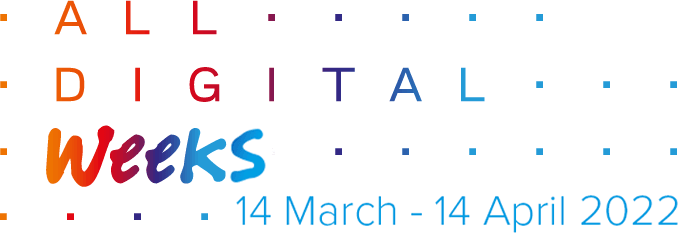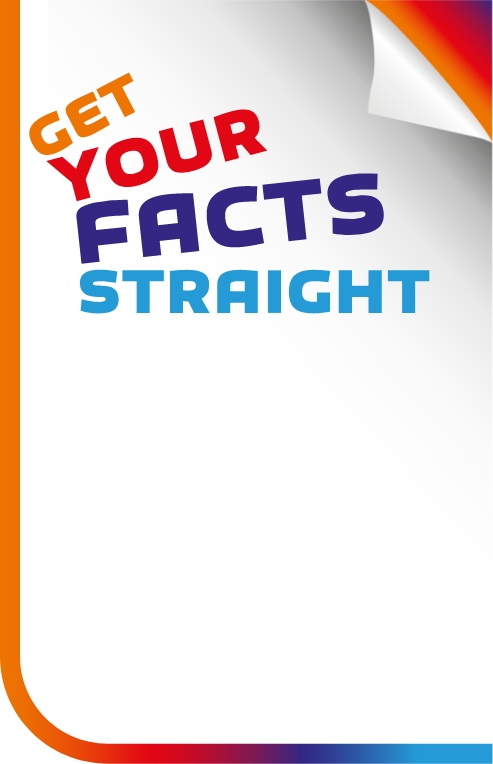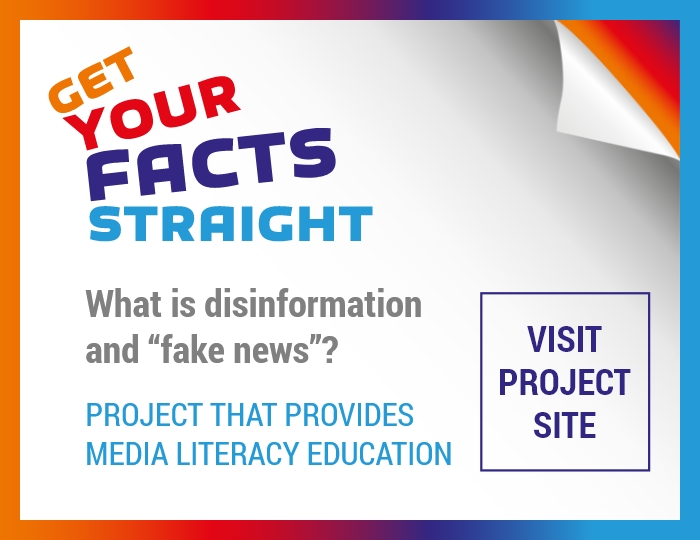During the last week of the All Digital Weeks 2022 campaign, the event “Policy recommendations to STE(A)M-On Education” took place on the 13th of April. This event targeted educators, learning centers, educator managers and policymakers at any level of formal, non-formal and vocational education, who aspired to explore STE(A)M education policies and move them forward at European, national and local level.

Opening the event, Achilles Kameas, Professor of Pervasive and Mobile Systems at Hellenic Open University,introduced the project with a brief overview of what the past two years have looked like: “The aims of the project were to contribute to innovative, cross disciplinary approaches in implementing STEM education by revising and strengthening the professional profile of the teaching profession. Then, creating a solid interdisciplinary base for developing stimulated competencies, and finally provide a complete framework that integrates all the aspects of teaching STE(A)M – which stands for science, technology, engineering, arts and mathematics. The idea behind STEM education is that we combine the mentioned disciplines and apply them into solving real world problems. Thus, it is an integrating approach, instead of a separating approach”.
To implement this, the first ever steam competence framework for STE(A)M educators was created. As the speaker said: “It contains 44 competencies grouped on the five different perspectives, each of which represents the role that the teacher and educator has infused into his or her professional life. To accompany this, we developed also a self-assessment tool, this allows both organizations and individual teachers to self-assess their competencies regarding STE(A)M”.
Additionally, an online platform was created to support the STE(A)M educators community, which gathered more than 700 members. More importantly, the STEAM education framework was developed, and it contains body of knowledge, good practices, and other guidelines. And finally, to support the professional development of educators a massive online open course (MOOC), followed by a blended course on design, orchestration and implementation of STEM education was delivered.
As the speaker said: “Perhaps the most important outcome of this project is out of the policy instruments: apart from the guide of good practices and policies, we also produced a set of policy recommendations for educators and for policymakers in order to make STE(A)M education more widespread”.

Following, Claudia Matera, Chief Development Officer at ALL DIGITAL, provided a picture of the current European policies on STE(A)M Education like the Green Deal, the EU skills agenda, the Digital Compass and the vision of the European Digital transformation by 2030, where the aim is to educate at least 80% of the population to basic digital skills.
Moving forward, the Digital Education Action Plan (DEAP) was discussed, and it focuses on creating digital education ecosystem where digitally competent and confident educators and training staff are needed, teaching basic digital skills and competencies from an early age. And last but not least, promote advanced digital skills development, and a overall more consistent participation of women in STE(A)M education practices, to foster gender equality.
She mentioned the Council recommendation of the 22nd of May 2018: “key competences for lifelong learning are needed due to the technological infrastructure, and service based modern societies, and the current overall level of knowledge and skills that citizens and educators have”. Finally, the Erasmus Plus Program Guide was described, which dedicated a specific mention to STE(A)M to support the development of national strategies, and also effective and innovative pedagogies and assessment, as well as the STE(A)MonEdu project.
She wrapped up her speech saying: “STE(A)M education can be interpreted as an approach to practically translate the green and digital transition within everyday life, to promote sustainable competitiveness at economic level, ensuring social fairness, building on resilience and, of course, provide an infrastructure and investigating gaps and needs that our society is facing”.
After this introduction, the STEAMonEdu policy recommendations have been presented, going through each point and asking project partners to provide insights from the project experience. The first policy recommendation is “The adoption of the STEAMonEdu educator competence framework” and Achilles Kameas discussed”the specific needs the STE(A)M on Edu project identified and the benefits of the framework for educators: “After doing extensive research within the community members, we came up with a framework that has three levels. The first level has 5 perspectives based on the roles that the steam educator has. And these are STE(A)M educator perceived as the person who delivers the teaching but also the person who creates the content dimension, manages the class, the person who has to collaborate with other colleagues, the person who must be aware of policies and frameworks. So, we’re following more or less the traditional structure of frameworks that is customary in an European Commission frameworks. And in this way, we try to provide a complete picture, through a complex method.”

The second policy recommendation is “Invest in teachers’, educators’ and educational staff training adopting the STEAMonEdu programme (MOOC and the blended training)” and an evaluation of the MOOC and the blended training was then given by Athanasios Iossifides, Associate Professor at International Hellenic University: “In theMOOC, more than 1000 participants enrolled, 9 out of 10 agreed that they acquired new skills, new knowledge, access to resources regarding STEAM education, and most importantly, they were able to apply what they have learned throughout the MOOC. The blended course was an intensive 3 weeks’ course for about 50 participants among the ones that had completed the MOOC, which emphasized practical aspects, and the creation of STE(A)M policies, to involve the participants deeper, while in parallel interacting with experts on the field”.

“The next policy recommendation is “Nurture the STE(A)M Community of Practice” and Esther Subias, Project Manager at Colectic, talked about how to nurture the STE(A)MonEdu Community of Practice, and she said that: “The community has been, and it is, an opportunity for educators to improve and disseminate their educational practices, getting more impact and exchanging ideas with other people that really care about this thing. On the platform, more than 725 people were talking about those topics, activities and policies, trying to find help inspiration ideas to develop their own practices to adapt them to their national contexts or regional contexts. That’s what makes a community or a community of practice of real practice”

Spyros Papadakis was invited to discuss the methodology to design educational scenarios and practices, commenting the policy recommendation “Support cross-disciplinary synergies within the educational organisation and between organisations”, and he stated that: “STE(A)M education is a philosophy of education that unites teaching skills and subjects in a way that resembles real life, looking for ways to foster curiosity and love of learning in our children. For that, it is vital to better adapt teaching to STE(A)M education, use STE(A)M educational templates, and create learning designs that helps educator in their classrooms”. He The speaker has been also invited to comment on the policy recommendation “Support the development of dedicated STE(A)M infrastructure” and then added in relations to the development of dedicated STE(A)M infrastructure and how it would enhance education across organizations, especially at national level, within school or between school organizations: “the infrastructure can be useful and, speaking for the Greek school, to improve and have broadband internet connection in all our schools, or robotics for kids are needed to support the application of STE(A)M education. We need to give more money for education from every country if we want to think about a STE(A)M infrastructure.’’
THE SECOND SET OF POLICY RECOMMENDATIONS ADDRESSING EDUCATIONAL POLICY MAKERS AT LOCAL, REGIONAL, NATIONAL, AND EUROPEAN
The first recommendation is “Develop a shared and common definition of STE(A)M education harmonizing the meanings and perspectives” and Spyros Papadakis commented adding that through STE(A)M students can see the connection on what they are studying with the practice, developing also the attitude and soft skills and building their self-confidence.
Afterwards, Achilles Kameas was asked to provide an insight on the next policy recommendation “Promotion of the STEAMonEdu educator competence framework” and he shared that STE(A)M education is experiential, and it has a pedagogy in which the application of knowledge skills is integrated through context projects or problems focused on learning outcomes. The significant contribution of STE(A)M professions and skills to economic development is that it incorporates teamwork and instruction in the soft skills needed for business and industry”.
Achilles Kameas and Spyros Papadakis were later invited to discuss the next policy recommendation “Support the development of an accrediting certificate of STE(A)M related skills for educators and its importance, and both of them highlighted the moral impact of validating skills that educators gain during this learning path. In Achilles Kameas’ words: “STE(A)M competencies are multidisciplinary, there is a specific need for people to go through a specific procedure in order to acquire them. So, a certification can not only be a boosting mechanism, but it can also be a recognition mechanism for those who have already invested in STE(A)M education and in developing their capacities”.

Going on, Paolo Russo, General Secretary at Stati Generali dell’Innovazione, commented the following policy recommendation “Organise and facilitate co-design development of policies between policymakers and educators”, stating: “When it comes to educational policy in the EU, we have countries where everything is decided at a centralized level, the ministry actually decides it. On the other hand, we have other countries, like Italy, where single schools or school districts have a lot of autonomy. The most immediate benefit can be seen where schools have a lot of autonomy, because the policymaking process becomes immediately a real policy. So, there is a lot of motivation for teachers to invest part of their time in trying to define policy system policies”.
The speaker also expressed his views on the next policy recommendation “Test and harmonise the evaluation processes and systems for both students and educators” stating: “Teachers are trying to change things to innovate. As of today, we have a working model in any school coming from an analytical culture, so tests are based on experience, on testing, on consolidating information. All the tests are based on past experience and has worked very well for centuries. The problem is that right now we are living in a society that is in a very quick transformation, it is always accelerating, so the slow process of consolidating this kind of tests is no longer working and is never delivered on time. The fact that tests are based on analytical models and not holistic approaches is one of the biggest show-stoppers for introducing STE(A)M education or innovation in school. Students are not directly hit by this issue but as a secondary effect they are penalized, when teachers are not stimulated to innovate and adopt STE(A)M education”.
Right after Jutta Schneider, Project Lead at Helliwood media & education, shared her experience referring to the policy recommendation “Develop and support awareness raising campaign on STE(A)M related topics” and the activities they are carrying out” in Germany. They created a lobby of stakeholders (educators, NGOs, parents and students) to be able to bring up STE(A)M education on a political and institutional level. The communication side, press and media, is needed to be involved. They are running a campaign on the Instagram account called STE(A)M magic, where they post every week astonishing STE(A)M topic and examples for young people. They also have family events in all main cities: there are maker fairs and young people, parents, school classes, come there and showcase STE(A)M related projects, visit exhibitions and get inspired. At Helliwood there is also an initiative they run every year, namely a competition for students and schools, where participants are asked to create a STE(A)M related project related to IoT, robotics, Minecraft, and the winner is then presented and promoted through the social media campaign”.
Following, Paolo Russo was asked to speak again on the policy recommendation “Fund and sustain mentoring events for both educators and education managers and promote STE(A)M ambassadors” highlighting” why mentoring would be an added value for educators, and he said: “The end value of a mentor is always high when you are moving into uncharted territories, because bringing the STE(A)M educational approach to school is still something that is in development. We are still living in the Heroic Age: ambassadors and mentors, can be heroes thanks to their competence and experience, because people need to receive hints, tips about the practical way to do things and they feel safer when somebody else has already done something and succeeded”.

Laurentiu Bunescu, Head of Digital Education Programmes at Fundatia EOS Romania, presented the development of STEAM national policies and frameworks. Commenting on the policy recommendation “Development of STE(A)M national policies and frameworks” he highlighted the lack of policies we are currently facing, also because of the complexity and fragmentation of STE(A)M education. To solve this problem the speaker suggested that: “Decentralization is not the problem, it could be an advantage. It’s easier to address specific issues encountered at the regional or local level. But without having some common frameworks, some concepts, and a common understanding it’s more difficult to understand how these regional policies could work.
The last policy recommendation is “Development of a STEM/STE(A)M Education Hub” and Claudia Matera, Chief Development Officer at ALL DIGITAL, commenting on this point looking forward at European level. There is an increase demand of STEM/STE(A)M education, and she highlighted a “STE(A)M centralised and common digital platform would support the access of high-quality training activities and tools tailored to educators of all levels and backgrounds.” Moreover, she closed the panel adding that it “would also enhance the national policy developments and overall framework adoption operating as a European platform where to converge professionals, managers and policy makers.”
STEAMonEdu Policy Recommendations: https://steamonedu.eu/wp-content/uploads/2022/01/D21-Guide-for-STEAM-education-policy-makers.pdf

























